To End All Wars
 for language and war related violence.
for language and war related violence.
Reviewed by: Ken James
STAFF WRITER
| Moral Rating: | Better than Average |
| Moviemaking Quality: |
|
| Primary Audience: | Adults Young-Adults |
| Genre: | War Action Drama Adaptation |
| Length: | 2 hr. 5 min. |
| Year of Release: | 2001 |
| USA Release: |
September 2, 2001 (festival) December 6, 2002 (Los Angeles) February 28, 2003 (Phoenix, Arizona) DVD: June 15, 2004 |
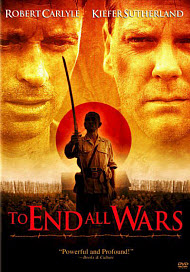

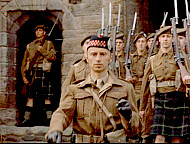
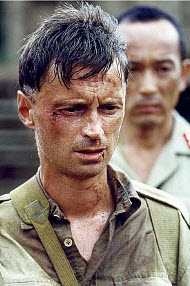
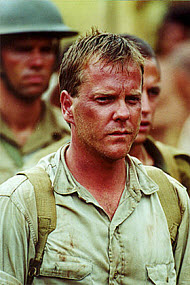
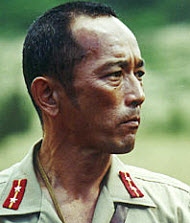
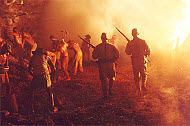
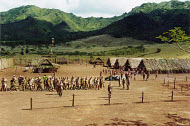
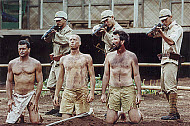
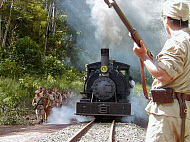
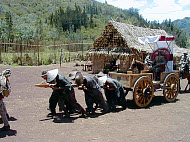
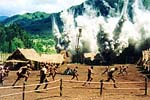
Who was the Christian that was crucified by the Japanese guard? Dusty Miller (martyr)
Who was author Ernest Gordon?
About mercy in the Bible
What is true Christian love, according to the Bible?
Bravery, self-sacrifice, courage
Public humiliation, inhumanity
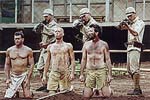
Why does God allow innocent people to suffer?
How can I be and feel forgiven?
If God knows I am hurting, why doesn’t He help me?
Hate
prisons in the Bible
What is DEATH? and WHY does it exist? Answer in the Bible
War crimes
What is the FINAL JUDGMENT? and WHAT do you need to know about it? Answer
Hellfire Pass, Thailand
Camp Kanchanaburi, Thailand
Tyranny
Why I stopped following Buddha and started following Jesus Christ? Answer
Ten Questions I’d Ask If I Could Interview Siddhartha Gautama (Buddha) Today
Can mysticism lead to God? Answer
personal story: Jesus Christ 2, Buddha 0
Starvation
Survival
Redemption through suffering
reconciliation
| Featuring |
|---|
|
Kiefer Sutherland … Lt. Jim ‘Yankee’ Reardon Robert Carlyle … Maj. Ian Campbell Mark Strong … Dusty Miller Ciarán McMenamin … Capt. Ernest ‘Ernie’ Gordon Ernest Gordon … Himself (uncredited) Pip Torrens … Lt. Foxworth James Cosmo … Lt. Col. Stuart McLean Yugo Saso … Takashi Nagase Sakae Kimura … Sgt. Ito Masayuki Yui … Capt. Noguchi John Gregg … Camp Doctor Coates Shu Nakajima … Nagatomo Greg Ellis … Sgt. Roger Primrose See all » |
| Director |
|
David L. Cunningham |
| Producer |
|
Argyll Film Partners Gummshoe Productions See all » |
| Distributor |
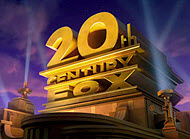 20th Century Studios, a subsidiary of The Walt Disney Studios, a division of The Walt Disney Company Freestyle Releasing Freestyle Digital Media Argyll Film Partners Ocean Avenue Entertainment |
“In a jungle war of survival, they learned sacrifice. In a prison of brutal confinement, they found true freedom.”
Download our pdf formatted review
War movies have been in vogue for some years now. Just looking into the recent past we’ve seen the likes of “Saving Private Ryan,” “Pearl Harbor,” “The Thin Red Line,” “Schindler’s List,” “Hart’s War,” “Uprising,” “Life is Beautiful,” and “Enemy at the Gates”—and these are just WWII films! Looking for a common running thread we find that 1) “war is hell” (which it is) and 2) mankind, put in extraordinary times, can either succumb to their oppressors or rise to overcome them.
“To End All Wars” is one such film. Rather then focusing on the plight of the Jewish people, this story centers around the true-life events of Ernest Gordon, author of Through the Valley of the Kwai. Gordon and his entire Scottish “Sutherland Highlanders” division were captured after the fall of Singapore and held deep within the Southeast Asian jungle. “The Bridge on the River Kwai” (1957) tells the story now known to so many; these sickly POWs forced to build a railroad running for over 400km through some of the harshest terrain on the planet. But while “To End All Wars” covers some of the same territory, it is wholly a different film.
 What makes this film unique is the redemptive and *don’t choke* Biblical theme of forgiveness. Irish-born actor Ciarán McMenamin portrays young soldier Captain Gordon who finds his faith at the selflessly caring hands of British POW Dusty Miller (Mark Strong, “One Against the Wind,” “Sunshine”). But while these two men begin to study and teach other POWs what it means to “turn the other cheek,” Major Ian Campbell (Robert Carlyle, “The Full Monty,” “Angela’s Ashes”) works at putting together an escape plan that will make their Japanese captors suffer. American fighter Lt. Tom Reardon (Kiefer Sutherland, “Eye for an Eye,” “Flatliners”, TV’s “24”) joins neither camp at first. He selfishly works at taking care of himself and only himself until a turning point comes that leads him to follow the higher road.
What makes this film unique is the redemptive and *don’t choke* Biblical theme of forgiveness. Irish-born actor Ciarán McMenamin portrays young soldier Captain Gordon who finds his faith at the selflessly caring hands of British POW Dusty Miller (Mark Strong, “One Against the Wind,” “Sunshine”). But while these two men begin to study and teach other POWs what it means to “turn the other cheek,” Major Ian Campbell (Robert Carlyle, “The Full Monty,” “Angela’s Ashes”) works at putting together an escape plan that will make their Japanese captors suffer. American fighter Lt. Tom Reardon (Kiefer Sutherland, “Eye for an Eye,” “Flatliners”, TV’s “24”) joins neither camp at first. He selfishly works at taking care of himself and only himself until a turning point comes that leads him to follow the higher road.
Like “Saving Private Ryan” and “Blackhawk Down”, “To End All Wars” is not for the squeamish. It is a solidly “R” rated film due to the war-related violence (very realistic, very bloody, straight from real-life), non-sexual male nudity, and offensive language (though the Lord’s name in vain was thankfully absent). Children and anyone else who could be deeply disturbed by the violence should avoid the film for this reason. Yet those who are willing to endure will find a film that shines brightly for its moral Christian worldview.
Such ultimate questions raised in this Oscar-caliber film include “Is there any higher reason to live?” “Do I have a purpose in life?” “How can I forgive those who have wronged me?” and “What would make a man once so selfish sacrifice himself for others?” (as one character in the film does). For answers, it is our prayer that those who see “TEAW” will turn to the Bible which is so highly regarded as the ultimate guidebook to life. (For a start, see the answers provided at right.) That means even the Christian audience who, for far too many, hold their own grudges and issues of unforgiveness.
If you are an apprentice to Christ and already name Him as your role model to strive towards, “To End All Wars” would be an excellent film to view with those who don’t yet have hope in their lives. The most impact will come from a follow-up discussion after seeing the film. Raise these tough issues and let the discussion go on from there.
Technically, “To End All Wars” is flawless. From the acting, to script, to filming, to the solid moral core. Let us pray for more of these to hit the big screen as, according to ministries working from within, Hollywood finds itself in an introspective and spiritually-seeking mode after 9/11. Kudos to Producer Jack Hafer, Director David L. Cunningham, and others who had a part in this noteworthy performance. You’d have to be a stone to not be moved by it, but Christ said that even “the stones will cry out” (Luke 19:40).
At the film’s conclusion, the real Ernest Gordon (who went on to immigrate to the U.S. and became Dean of the Chapel at Princeton University for 26 years) is filmed on location at the River Kwai in Thailand during a 2000 meeting with former adversary Takashi Nagase in a touching reconciliation reunion.
See list of Relevant Issues—questions-and-answers.


[Better than Average / 5]
So how does a person of faith start a conversation with a world bent on looking for ways to undermine and deconstructionalise anything that carries Christian content?
One might start with a book based on a true story that carries indisputable faith, courage, love and virtue in a setting that flies in the face of human nature. One would do it with excellence and without compromise regardless of what the world or even the church might have to say about the graphic nature of the depravity of man.
One would try to walk up the middle of both lines of prejudice with a bullet proof example of these attributes and throw the gauntlet down to believer and unbeliever as an indictment to us all to challenge our beliefs, and then summons us to take an inventory of our lives and to ask the ultimate questions of who am I, why am I here and where am I going?
One might do all these things and title it: “TO END ALL WARS.” My hat’s off to you Jack Hafer, David Cunningham and Penelope Foster, you did a fine job and are setting the precedent for good faith-based filmmaking.
Moral rating: Excellent! / Moviemaking quality: 5
PLEASE share your observations and insights to be posted here.
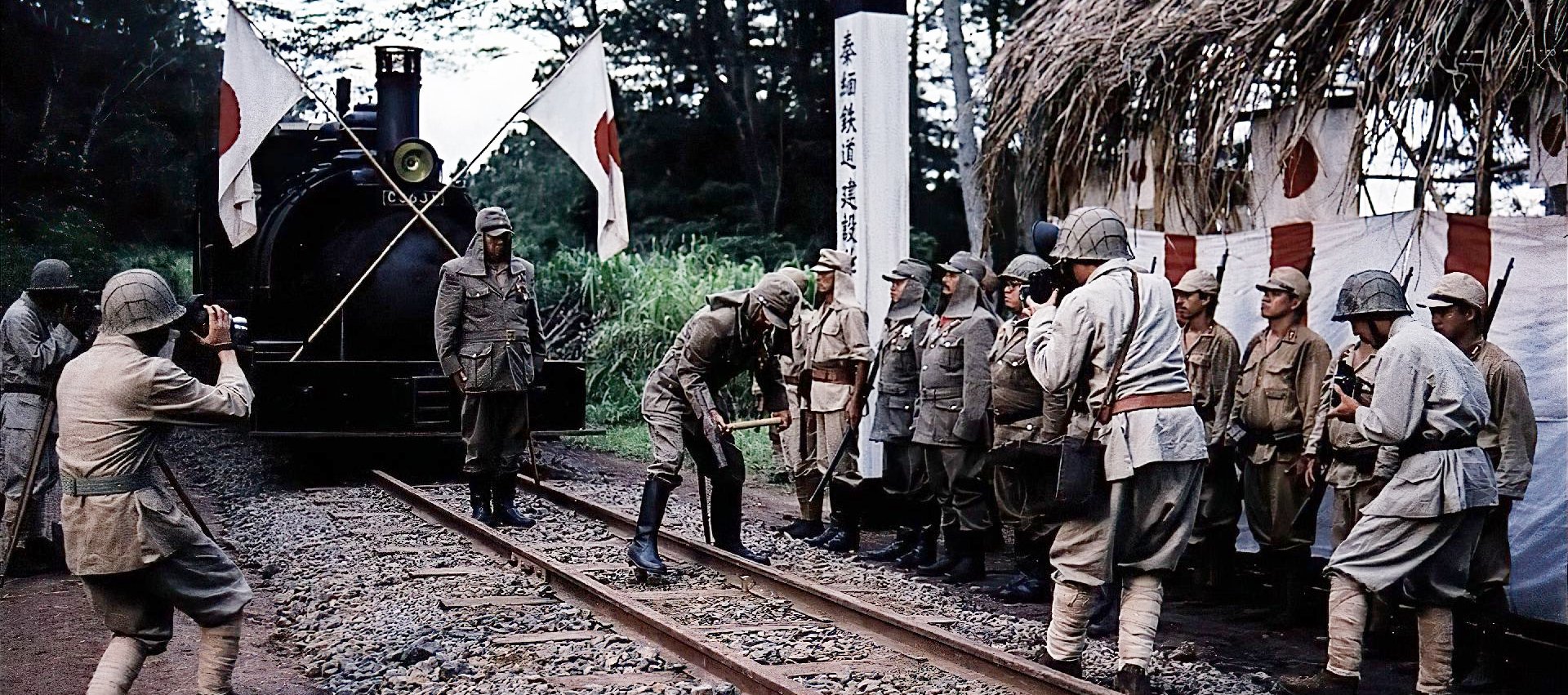





Finally, after 45 years, Ernest Gordon got to see toward the end of his life, production of “To End All Wars,” the true telling of his story and that of the many POWs who came to Christ during that terrible time. The story of Christian forgiveness and reconciliation to their captors is shown poignantly at the film’s end, as the real Ernest Gordon and Takashi Nagase meet at the site of the bridge on the River Kwai and at one of the huge memorial cemeteries.
This is the real story that deserves Academy Award recognition.
My Ratings: Moral rating: Excellent! / Moviemaking quality: 5